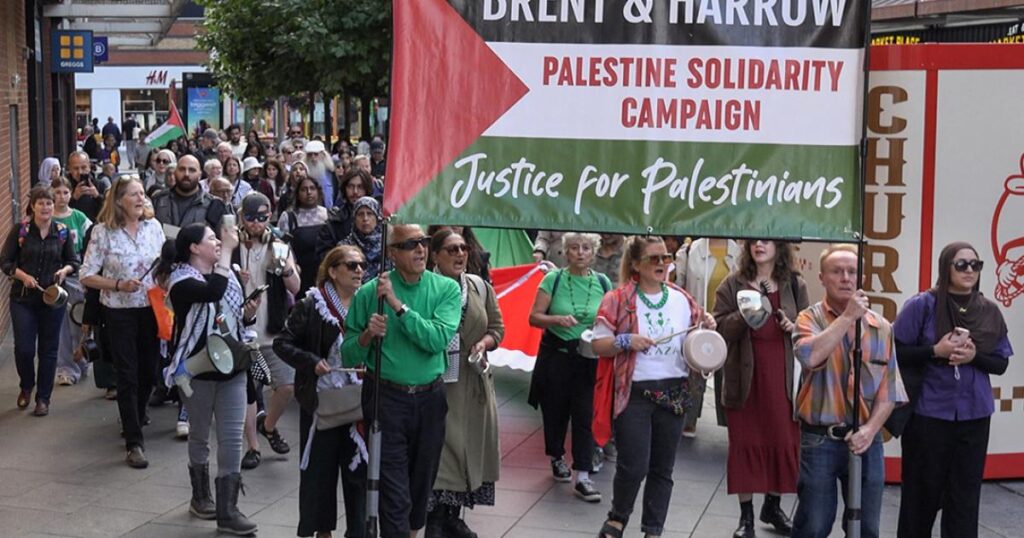On August 1, campaigners marched through Harrow town centre to raise awareness of the ongoing crisis in Gaza.
One held a banner that read: “Starving children is not self-defence.”
Organised by the Palestine Solidarity Campaign’s Brent and Harrow branch, the event formed part of a national day of action intended to draw public and political attention to the humanitarian emergency in Gaza.
Husain Akhtar, co-ordinator at the Harrow Monitoring Group and a former councillor, said: “Public street protests in Harrow are rare but when staged they do make a point.”
The protest used the banging of pots and pans to make noise and symbolically highlight the desperation of those affected by the conflict.
The crisis in Gaza has reached critical levels, with international hunger experts warning of a “worst-case scenario of famine” in the territory.
A United Nations report stated that 859 people were killed near Gaza Humanitarian Foundation sites between May 27 and July 31, with hundreds more dying along food convoy routes.

The IPC’s alert, though not a formal declaration of famine, comes amid reports of dozens of hunger-related deaths and widespread images of starvation.

In response to international pressure, Israel recently announced daily humanitarian pauses in parts of Gaza and began air drops of aid.
However, the United Nations and Palestinian officials say these measures have brought little relief, with many aid deliveries still unable to reach those most in need.
Crowds continue to intercept and unload trucks before they reach their destinations, highlighting the breakdown in security and distribution.
A formal famine declaration requires extensive data, which humanitarian groups say is nearly impossible to collect given the lack of access and mobility within Gaza.




